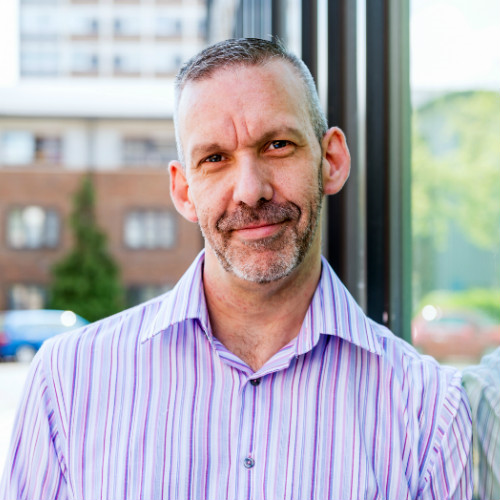Work and wellbeing in 2020
In this post, Employment Advisors Marwah Aziz and Darryl Childs talk about the shift in their approach to supporting participant wellbeing in 2020.

Renaisi’s employment services are designed to help people find and sustain work. Wellbeing support has always been a part of that work.
The benefits of work are most apparent when compared with the well-documented detrimental mental health effects of unemployment. We work with refugees who want to find work but also need help to understand UK systems, make connections and settle into their new area. Our support can involve things like, introductions to social clubs, help to set up a bank account or register with a GP. We also work with older people, some of whom have been out of the jobs market for a long time and need help to build back their confidence.

What’s changed this year?
After the initial panic at the start of the pandemic, some of the job seekers who had been out of work for a long time began to feel despondent. What they saw was more and more people entering the job search market and extra competition for the jobs they were applying for. Others simply didn’t want to go out to interviews or to work because they were scared about the virus.
“You cannot fault Renaisi’s desire to continue helping people. Covid-19 has obviously made it difficult to come into the office but everything you are doing over the phone to keep us motivated, build our confidence, sending us jobs to apply for has been very good and complementary.”
Employment service participant.
It’s meant that while our role is fundamentally the same, there is now more of a focus on each participant’s wellbeing. Thanks to some changes to our contract model, we now track each interaction and put a more explicit value on progress towards helping a participant on their personal journey.
“Renaisi phone calls n discussion really have a positive impact on me n my child because my caseworker always asked anytime he called on phone about our health n wellbeing n also advise me to observe all the safety measures in order to avoid being sick or getting d virus which I really appreciate.”
EMPLOYMENT SERVICE PARTICIPANT.
The majority of our appointments used to be face to face but now we’re not going to the office we’re mainly working on the phone. Some people just can’t engage online, either because they have no internet, no access to a laptop, or they have low IT skills or language barriers. It can make things harder to communicate – especially with non-English speakers – and we’ve found that it takes longer to build relationships without ever having any face to face contact.
While the pandemic has heightened issues for many, there has been an increase in support offered to help people who are struggling the most. It means we have been able to help with a wider range of things, including delivering food parcels and vouchers to participants who can’t afford or access food. We have also been able to help out with some of their digital accessibility challenges.
Effects on wellbeing
Lockdown means loneliness and isolation have become a real problem. We’re now helping people just by being there.
Participants rely on us and talk to us more because for some, we are one of the few reliable constants in their life. We often check in between our allotted calls. Sometimes the participant hasn’t spoken to anyone else all day long, so we’ll have a chat about what they’ve been up to, ask after their family, and check in on their wellbeing.
By setting a regular routine of appointments and setting achievable goals like browsing the paper for jobs in a particular sector, we help to create focus and purpose in an uncertain world.
“My advisor has been consistent with keeping in communication, when she says she is going to call she calls and I like that. I get help and support with jobs that are being sent to me, I really like the consistency of the service that I am getting.”
EMPLOYMENT SERVICE PARTICIPANT.
In some cases we’ve found engagement has increased because participants no longer have to find the time to travel, arrange childcare or pay transport costs. That level of flexibility has been good for some participants, and for us.
“Working with Renaisi has been a positive experience for me as I do have problems with myself in terms of mental health issues. The remote appointments have given me a second chance and I have really engaged with my advisor better.”
EMPLOYMENT SERVICE PARTICIPANT.
Hopes for 2021
Like everyone we hope for a return to normality, especially in the jobs market, so we can help more of our participants who have experience working in retail and hospitality into roles that suit them.
We’d also like some form of face-to-face interaction with participants so we can build stronger relationships faster, even if it’s just one meeting at the start of a relationship. That would be nice.

- Find out more about our employment & advice services
- Contact Rebecca Simpson on:
- 020 7033 2600
- r.simpson@renaisi.com




